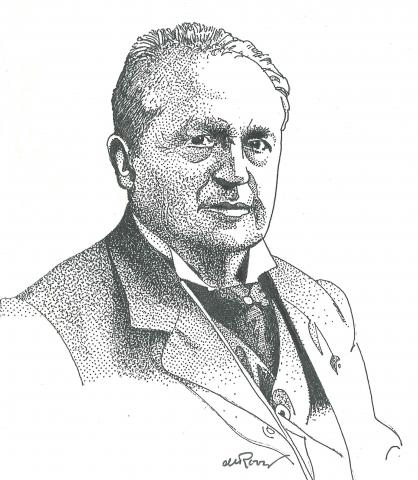A revised and updated version of
Abraham Kuyper: An Annotated Bibliography 1857-2010 by Tjitze Kuipers (2011)
You can buy a printed edition of this book on the site of the publisher.
1918
Ontvang met de broederen mijn hartelijken dank voor het zoo hartverkwikkende telegram, dat gij mij toezondt. Kuyper.
Kuyper sent these words of thanks in reply to a telegram he had received from J.J. Croles of Leeuwarden. Croles was the chairman of the Frisian Provincial Committee of Anti-Revolutionary Electoral Associations and also the chairman of the Frisian committee responsible for the organization and recruitment for the Special Voluntary Home Service. Croles had sent Kuyper a telegram stating that the (seven hundred) Frisian volunteers in Leeuwarden had returned home from the Hague. Festively convened in the Noorderkerk, they felt obliged to repeat their most heartfelt loyalty to their “grey general under whose leadership their fathers—just as they—fought for the Netherlands and [the house of] Orange” (Friesch Dagblad, no. 4198, November 21, 1918).
On November 10, 1918—a Sunday morning—the German Kaiser went into exile in the Netherlands. The Great War ended on Monday, November 11. On November 12 P.J. Troelstra announced the peaceful revolution and seizure of power by the Socialists. (A number of European countries had seen revolutions and now revolution also threatened the Netherlands.) On November 13 the government mobilized the Voluntary Home Service. A Frisian department joined others traveling to the Hague to protect the Netherlands and the house of Orange. The announced revolution did not proceed as planned, however. After making an enthusiastic homage to the royal family in the Hague, the Frisian department of the Volunteer Home Service walked to Kuyper’s house on November 18 to express loyalty to him as well (cf. 1921.01, pp. 35–37).

